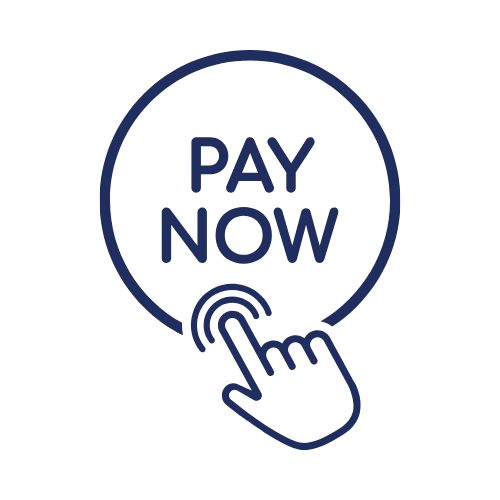Patient Information
Webster County Community Hospital would like to encourage our patients and community to explore health issues.Ask Me 3
Check out the "Ask Me 3" educational program information developed by the Partnership for Clear Health Communication at the National Patient Safety Foundation- a coalition of national organizations that are working together to promote awareness and solutions around the issue of low health literacy and its effect on safe care and health outcomes.
Click here for more information on this program!
Advance Directives
In Nebraska, adults who are capable of making health care decisions generally have the right to say yes or no to medical treatment. As a result, you have the right to prepare a document known as an "Advance Directive". The document says in advance what kind of treatment you do or do not want under special, serious medical conditions-that would prevent you from telling your doctor how you want to be treated. For example, if you were taken to a hospital in a coma, would you want the hospital's medical staff to know your specific wishes about the kind of medical treatment that you do and do not want to receive?
What is an Advance Directive?
An Advance Directive is a written statement which reliably shows that you have made a particular health care decision or have appointed another person to make that decision on your behalf. The two most common forms of Advance Directive are: a "Living Will"; and a "Power of Attorney for Health Care"
An Advance Directive allows you to state your choices for health care or to name someone to make those choices for you if you become unable to make decisions about your medical treatment. In short, an Advance Directive can enable you to make decisions about your future medical treatment. You can say "yes' to treatment you want or "no" to treatment you do not want.
What is a Living Will?
A Living Will generally states the kind of medical care you want or do not want if you become unable to make your own decisions. It is called a "Living Will" because it takes effect while you are still living. The Nebraska Legislature has adopted laws governing living wills. This law is known as the Rights of the Terminally Ill Act. An adult of sound mind may execute at any time a declaration governing the withholding or withdrawal of life-sustaining treatment. The declaration must be signed by the individual or another person at the individual's direction and witnessed by two adults or a notary. No more than one witness to a declaration can be an administrator or employee of a health care provider who is caring for or treating the individual. An employee of a life or health insurance provider cannot be a witness for the individual. Under the law, life-sustaining treatment cannot be withheld or withdrawn under a declaration from an individual who is pregnant if it is probable that the fetus will develop to the point of live birth with continued application of life-sustaining treatment. A Living Will should clearly state your choice with regard to health care.
What is a Power of Attorney for health care?
A "Power of Attorney for Health Care" is a legal paper naming another person, such as a husband, wife, daughter, son, or close friend, as your "agent" or "representative" to make medical decisions for you if you should become unable to make them for yourself. Your agent, or representative, is guided by your instructions, and you can provide instructions about any treatment you do or do not want. In general, the power of attorney can give to the agent or representative the same powers an individual may have or could enforce on his/her own behalf. Nebraska has laws on Powers of Attorney for Health Care which allow an agent to make medical decisions for the person giving the power of attorney.
A power of attorney for health care must be in writing; identify yourself, your agent, and your successor agent, if any; specifically authorize the agent to make health care decisions on behalf of yourself in the event you are incapable; show the date of its execution; and be witnessed and signed by two adults, each of whom witnesses the signing and dating of the power of attorney for health care by you or your acknowledgment of the signature and date, or be signed and acknowledged by you before a notary public who is not the attorney in fact or successor attorney in fact.
Your power of attorney for health care can grant authority for health care decisions as described in the law. However, the authority to consent to withholding or withdrawing a life-sustaining procedure for artificially administered nutrition for hydration is effective only when:
1. You are suffering from a terminal condition or are in a persistent vegetative state; AND
2. Your power of attorney for health care explicitly grants the authority to your agent or your intention to withhold or withdraw life-sustaining procedures or artificially administered nutrition or hydration is established by clear and convincing evidence. Clear and convincing evidence may be a living will, clearly documented medical record, refusal to consent to treatment, or other evidence.
Must a health care provider follow an Advance Directive?
Your health care provider must follow your Advance Directive unless the health care provider has informed you that it is unwilling to do so. If the health care provider is unwilling to follow your living will, the health care provider or physician must assist in transferring your care to another provider who is willing to follow your power of attorney for health care, your agent or representative must make arrangements to transfer you to another provider who is willing to follow your power of attorney for health care.
When does an Advance Directive take effect?
Your Advance Directive generally takes effect only after you no longer can make personal decisions. As long as you can make personal decisions on our own behalf, your health care givers will rely on you, not on your Advance Directive.
Can I change my mind after I write an Advance Directive?
Yes. To change or cancel an Advance Directive, simply destroy the original or take some other action to notify those who might rely on your Advance Directive that you are changing it or no longer want to have it effective. If you have given the Advance Directive to your doctor, notify your doctor of your change of mind. If you have given it to another health care provider, such as a hospital, nursing home, or home health agency, or a relative, notify them that you have changed your mind. If you have written a new document, you should give a copy of the new document to your doctor, other health care providers, and anyone else who may be involved in your care.
If I executed an Advance Directive in another state, will it be followed in Nebraska?
If you have executed an Advance Directive in another state and it is valid under the laws of that state or of Nebraska, it is valid in Nebraska.
Health Topics
Below are a list of topics you might want to explore.Heart Disease
High Blood Pressure
Colds & Flu
Accidents
For other health topics please click here.















